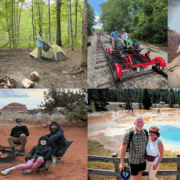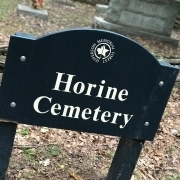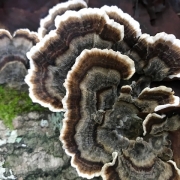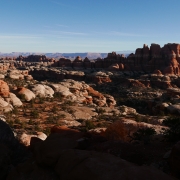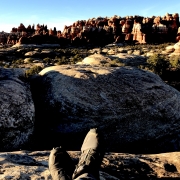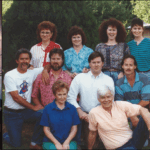Home Economics and the Temple of Doom Pt. 2 | Healthy Aging Series: S11 E27
It’s the 4th of July weekend and of course that means the Twilight Zone Marathon. I don’t advise watching it for 72 hours straight. It’s like having CNN or Fox News constantly playing in the background. The main characters of each of these episodes finds themself in a completely helpless situation. Think about it. Hours and hours of helplessness. Watch it at your own risk. But I want to propose a different zone.
No-Judgment Zone
During this episode I’m going to write about money and people with money. And I want this to be a no-judgment zone. You can’t write or teach about money, or rather you can’t learn about money, you can’t grow in your relationship with money, if you become defensive or feel judged by the person doing the teaching.
And so, I’ve entitled this Home Economics and the Temple of Doom Part 2. The first episode was about Home Economics, relating to what I learned at home about economics.
And maybe this is the “Temple of Doom” episode, because it talks about that thing that nobody wants to talk about, death. More precisely it’s about death and money. I want to share some different perspectives on money. These perspectives include: a Fairy Tale, a Hebrew Poem, Stoicism, and a Book.
First, People with Money
Elon Musk. Bill Gates. Jeff Bezos. Warren Buffett. The Walton family. All billionaires. Even Jerry Seinfeld is a billionaire, and Selena Gomez. And, yes of course, Taylor Swift, Kim Kardashian and Rihanna are billionaires. All together there are 756 billionaires in the United states. Kentucky has one. Elon Musk’s net worth is 450 billion. He states that he doesn’t have that in cash laying around. Most of it’s in stock, but let’s just say it is cash, you’d have to spend $780,000 every minute if you wanted to spend it in a year. Of course, that doesn’t take into account the interest and the return on investment that he’s getting.
Mostly, what I hear people ask is why does he need all that money? Forget the billionaires. Why a million. There are 22 million millionaires in the United states with an average net worth of $2.2 million. How much is enough? What does being a millionaire or a billionaire do to a person? How does having all that money affect a person?
I’m not sure I can answer that in this episode, but I can share what others have written about money.
The First Perspective on Having Money: The Fairy Tale.
Death of a Miser
There was once an old Miser who had two sons and a great deal of money. When he heard Death coming, he locked himself up in his room, sat on his oaken chest, swallowed his gold coins, chewed up his bills, and thus ended his life. His sons came, laid out the dead body under the Holy Icons, and invited the Sexton to chant the Psalms.
At midnight a Devil in human form suddenly appeared, took the old man on his shoulders, and said, “Hold up the flap of your coat, Sexton!” And he shook the dead man, saying, “The money is yours, but the bag is mine.” And he vanished, taking the body with him.
There are some warnings in this Fairy Tale about money. This Fairy Tale warns us against thinking that we can take our money with us. It warns us against thinking our money will save us from the certainty of death. Death is coming, and you can’t take anything with you.
Miserly people love their money, and they attempt to take nourishment from it, but to no avail. Nothing is crueler than death; it’s even violent. Death shakes us to our core. It empties us of everything we cherish. Death disrespects us and is impolite and contemptuous. I can see the Miser’s body being held upside down and emptied of its stuff. Death refers to the Miser’s body as a bag, “The money is yours, but the bag is mine.” That’s all we are in the end.
But not now. Now we are living and breathing wonders. We are Fathers and Mothers, Sons and Daughters, Aunties and Uncles, Grandpas and Grandmas.
And as such we are not bags, but we are streams of nourishment for those that we love and for those who are thirsty. It isn’t stated in this Fairy Tale how the Miser feels about his money going to the church, but I can only imagine that he’s pissed.
I would be, but only because I would want other organizations or people, that match my values, to receive my money, like my family as an example. As streams, we can direct the flowing water where we want.
My wife and I have four hanging plants on our front porch that need watered every day in the midst of summer. After two or three days without water they would dry up and die.
Use your money now, the Fairy Tale implies. Use it to live. Use it for your health. Use it for the health and welfare of those that do the best they can to water themselves but suffer from the merciless heat of underemployment, misfortune, and poor choices. Be more than a bag, the Fairy Tale predicts, be a stream.
Next, Stoicism and Money
I’ve taken much of what I’m going to share from, “The Practicing Stoic,” by Ward Farnsworth.
One of the goals, or actually the goal of Stoicism is tranquility, or living a life free from anxiety and depression. Stoics suggests what motivates people to accumulate money and wealth is their desire to qualm their anxiety, and their desire to be happy. Mo money, no pain (anxiety). This never works!
Farnsworth explains the Stoic view:
“Once we have money, we worry about keeping it, are anxious for more of it, and feel pain when it is lost. We feel the desire for more of whatever we have and gradually value all sorts of things more highly than they are worth.”
Money is not a problem-solver, and in fact creates more problems. Seneca suggests that when people have problems, more often than not, these problems revolve around money.
“Most of our outcries are about money. It is this that wearies the courts, pits father against son, brews poison, gives swords to the legions and to cutthroats alike, and because of it Knights resound with quarrels of husbands and wives, crowds swarm to the tribunals of the magistrates, King’s rage and plunder and overthrow states that have been built by the long labor of centuries, in order that they may search for gold and silver in the very ashes of cities.”
Seneca again warns:
“Posidonius holds that riches are a cause of evil, not because they do evil themselves but because of evil they goad men to do. Riches puff up the spirit and beget pride. They bring on envy and settle the mind to such an extent that a reputation for having money delights us, even when that reputation will do us harm.”
Moderation, Detachment, Enough
Here’s the lesson from the Stoics regarding money: learn to get by with less, learn to care less about things, learn to be happy with less. When we learn this and practice these things, Seneca suggested that “We conquer avarice, ambition, and the fear of death, a foe that has conquered the conquerors of the world.”
What did the Stoics strive for? Again, Farnsworth:
“Stoics regarded wisdom and understanding as producing a kind of joy that is immune from the interruption by circumstance.”
William Irvine, from “A Guide to the Good Life,” concludes, “Wealth has the power to make people miserable.”
It’s almost impossible to share a comprehensive Stoic view of money and wealth, so I invite you to pick up Irvine’s or Farnsworth’s book and see the broader picture of where money fits into the Stoic view.
A Hebrew Poem: Ecclesiastes
I am fond of the Wisdom Literature of the Hebrew scriptures. It is so practical and pragmatic. Ecclesiastes has something to share about money and fortune. Much like the Folk Tale, that I shared earlier, the Teacher of Ecclesiastes has some very frank and direct things to say about money. First let me share a portion of this poem.
So, I turned to consider wisdom and madness and folly; for what can the one do who comes after the king? Only what has already been done.
Then I saw that wisdom excels folly as light excels darkness.
The wise have eyes in their head, but fools walk in darkness.
Yet, I perceived that the same fate befalls all of them.
Then I said to myself, “What happens to the fool will happen to me also; why then have I been so very wise?”
And I said to myself that this also is vanity. For there is no enduring remembrance of the wise or of fools, seeing that in the days to come all will have been long forgotten. How can the wise die just like fools?
So, I hated life, because what is done under the sun was grievous to me; for all is vanity and a chasing after wind. I hated all my toil in which I had toiled under the sun, seeing that I must leave it to those who come after me and who knows whether they will be wise or foolish?
Yet they will be master of all for which I toiled and used my wisdom under the Sun. This also is vanity. So, I turned and gave my heart up to despair concerning all the toil of my labors under the sun, because sometimes one who has toiled with wisdom and knowledge and skill must leave all to be enjoyed by another who did not toil for it.
This also is vanity and a great evil. What do mortals get from all the toil and strain with which they toil under the sun? For all their days are full of pain, and their work is a vexation; even at night their minds do not rest.
This also is vanity.
There is nothing better for mortals than to eat and drink and find enjoyment in their toil. This also, I saw, is from the hand of God; for apart from him, who can eat or who can have enjoyment?
For to the one who pleases him, God gives wisdom and knowledge and joy; but to the sinner he gives the work of gathering and heaping, only to give to one who pleases God. This also is vanity and a chasing after wind. (Ecclesiastes 2:12-26 NRSV)
My first take-away from this passage is the “Temple of Doom” reminder to us all. “The same fate befalls all of us.” Of course, The teacher is writing about death. And he shares the futility that death brings. The futility comes as we ponder that all the effort that we make building an empire and accumulating wealth, and for it to be frittered away by a fool. When you die, you lose control over the things that you managed and the things that you built over a lifetime. And so, his advice is to live now and enjoy the fruit of your laborers now. As I read this Hebrew Wisdom literature, I would have been disappointed if I didn’t see the that the Hebrew God was a source of meaning to the writer’s life. For the Hebrew, this life only has meaning in light of the next life. It is clear that in the next life, more money and fortune will have absolutely no influence or power, so use it to please God in this life.
The Book: “Die With Zero,” by Bill Perkins
I was struck by the title of this book. It has some very important lessons for all of us, not that far afield from the other things that I’ve written in this episode.
Lessons from Die with Zero
First, make intangible investments and sooner rather than later. It’s important to understand that he is talking about investing in life experience. He isn’t talking about being irresponsible, but he is warning against going your whole life without experiencing the wonders and beauties of this planet and all its inhabitants.
Open Range
One of my favorite scenes in a movie is from the movie Open Range where Kevin Costner and Robert Duvall’s characters are getting ready to defend a town against a corrupt sheriff and landowner. They go to a general store and decide that they are going to be a little extravagant. Robert Duvall’s character asks the owner of the shop if he had any expensive candy, and the owner points to the dark chocolate from Switzerland. Duvall asks him if he had ever tasted it and the owner replies “No it’s too expensive for my wife and me.” Duval says to him, “It’s been sitting there all this time and you’ve never even had a taste.”
Perkins is suggesting that we use some of the money we are saving for our future and experience the “dark chocolates” of this beautiful world before we die.
Second, Plan your finances so that you die with zero amount of money in your 401K or IRA. Don’t fret, he has a plan to help you with this: a formula. I have a neighbor who has decided to spend his money on travel. He’s 85. He and his wife just did a 10-day tour which included five National Parks in Arizona, Utah, Colorado, and Wyoming. He tells me he’s planning another one.
My son, daughter-in-law, and granddaughters and I did a tour of four national parks in Utah, Arizona and Colorado a few months ago. I’m investing now in memories.
Perkins wants you to invest in memories, memories that act like compounding interest, and he wants you to start making those memories when you are young. He suggests that you use something like an annuity as a way of guaranteeing that you spend all before you die.
Third, give it away now!! Help your children, grandchildren, and charities now while you’re alive. I provide a small amount to my sons now when they might need it. And I started a 529 plan for my granddaughters. It’s a wonderful thing watching them use it now.
Fourth, figure out what’s important and then let that guide your generosity and endgame. For me, I love my wife, my sons, my daughter-in-law, and my granddaughters. I love the outdoors. I love seeing new places, and reading and writing, and I love exercise, hiking, and climbing. How does my spending and generosity match what I love? I think pretty well!
Perkins writes about not being on autopilot as you age. By autopilot I think he means, living without a purpose or plan.
I’m spending my senior years working as long as my health allows and distributing my wealth to the people and things I love.
Bottom line: This is the Home Economics that I’ve learned throughout my life.
Like many of you, I invested a lot of time and money in my education. It has and continues to pay dividends. And I continue to invest in the experiences that match what is important to me. My #2 son and I have gone camping this spring at the Red River Gorge and in the local forest. My #1 son and I are hiking to the top of Pikes Peak via the Barr Trail this summer and will probably do Canyonlands National Park in October. July 19th, 2025, marks the beginning of my 70th year and I’m going to plan some feats of strength and time with family throughout the year.
What did you learn about money growing up? And what have you learned about money since then. Remember: The money is yours; the bag is mine.”
Amen!

